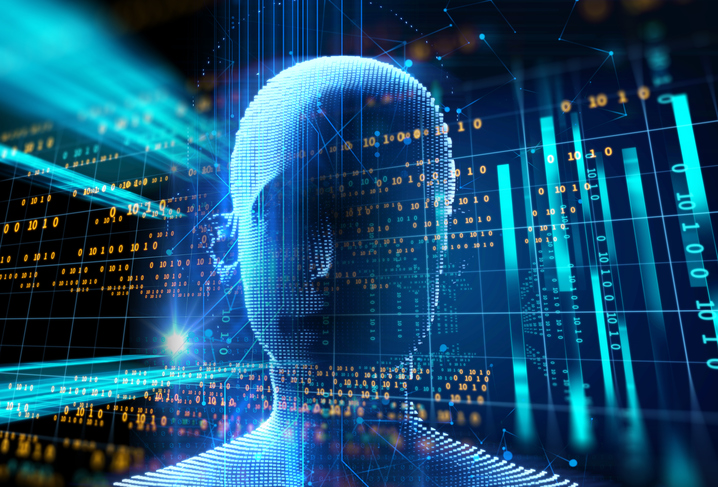Stanford professor predicts futuristic face scans will be able to determine your political beliefs

A free daily email with the biggest news stories of the day – and the best features from TheWeek.com
You are now subscribed
Your newsletter sign-up was successful
Could a quick face scan by artificial intelligence (AI) someday be able to determine whether you're liberal or conservative? Stanford University professor Michal Kosinski claims that AI will eventually be able to guess exactly that — and more.
Based off of just photos of people's faces, Kosinski told The Guardian that a computer program will be able to tell "whether they have high IQs, whether they are predisposed to criminal behavior, whether they have specific personality traits and many other private, personal details." "The face is an observable proxy for a wide range of factors, like your life history, your development factors, whether you're healthy," he said.
Kosinski was behind the controversial study published last week claiming that AI can guess a person's sexual orientation based off a photo of his or her face. While the AI was highly accurate in determining sexuality — it corrrectly identified sexual orientation in 91 percent of men — it wasn't always right, raising a slew of concerns and sparking controvesy with LGBTQ advocacy groups. GLAAD Chief Digital Officer Jim Halloran argued that "technology cannot identify someone's sexual orientation," and suggested that what the scientists' technology had actually recognized was "a pattern that found a small subset of out white gay and lesbian people on dating sites who look similar."
The Week
Escape your echo chamber. Get the facts behind the news, plus analysis from multiple perspectives.

Sign up for The Week's Free Newsletters
From our morning news briefing to a weekly Good News Newsletter, get the best of The Week delivered directly to your inbox.
From our morning news briefing to a weekly Good News Newsletter, get the best of The Week delivered directly to your inbox.
Similar questions inevitably arise with the prospect of using such technology to determine a person's criminal tendencies or intelligence level. Kosinski noted that AI would best be able to determine political affiliation for people who were far right or left, and less so for moderates.
But Kosinksi argued the technology could be useful in beneficial ways, such as determing which students may need more help in school. "The technologies sound very dangerous and scary on the surface, but if used properly or ethically, they can really improve our existence," Kosinski said.
Read the full story at The Guardian.
A free daily email with the biggest news stories of the day – and the best features from TheWeek.com
-
 What to know before filing your own taxes for the first time
What to know before filing your own taxes for the first timethe explainer Tackle this financial milestone with confidence
-
 The biggest box office flops of the 21st century
The biggest box office flops of the 21st centuryin depth Unnecessary remakes and turgid, expensive CGI-fests highlight this list of these most notorious box-office losers
-
 What are the best investments for beginners?
What are the best investments for beginners?The Explainer Stocks and ETFs and bonds, oh my
-
 Nobody seems surprised Wagner's Prigozhin died under suspicious circumstances
Nobody seems surprised Wagner's Prigozhin died under suspicious circumstancesSpeed Read
-
 Western mountain climbers allegedly left Pakistani porter to die on K2
Western mountain climbers allegedly left Pakistani porter to die on K2Speed Read
-
 'Circular saw blades' divide controversial Rio Grande buoys installed by Texas governor
'Circular saw blades' divide controversial Rio Grande buoys installed by Texas governorSpeed Read
-
 Los Angeles city workers stage 1-day walkout over labor conditions
Los Angeles city workers stage 1-day walkout over labor conditionsSpeed Read
-
 Mega Millions jackpot climbs to an estimated $1.55 billion
Mega Millions jackpot climbs to an estimated $1.55 billionSpeed Read
-
 Bangladesh dealing with worst dengue fever outbreak on record
Bangladesh dealing with worst dengue fever outbreak on recordSpeed Read
-
 Glacial outburst flooding in Juneau destroys homes
Glacial outburst flooding in Juneau destroys homesSpeed Read
-
 Scotland seeking 'monster hunters' to search for fabled Loch Ness creature
Scotland seeking 'monster hunters' to search for fabled Loch Ness creatureSpeed Read